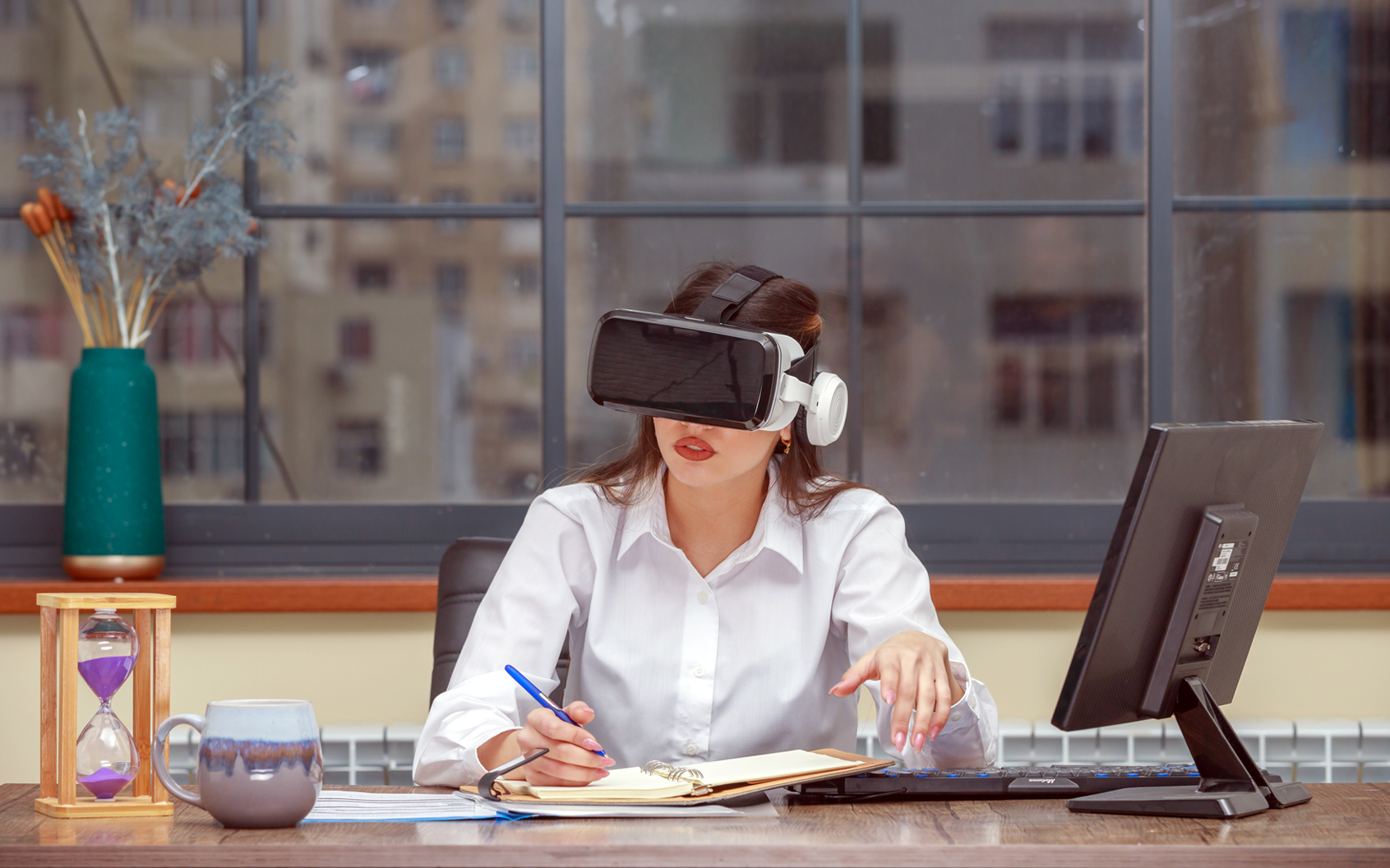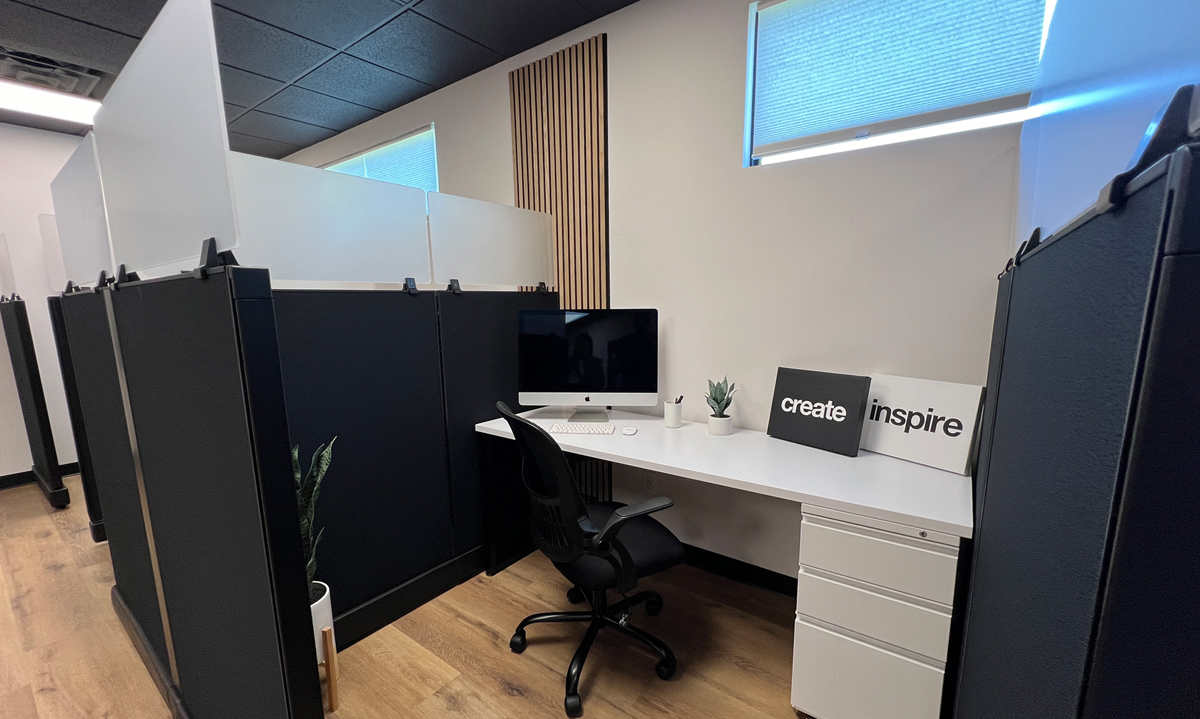
The Future Of Private Office Experience: What to Expect In The Coming Years

The global work canvas has witnessed a seismic shift, with hybrid work patterns becoming the zeitgeist of the modern professional narrative. This transformation has been driven by a potent combination of digital upgrades and cultural transitions, representing an evolution from the traditional workplace structure and a step into uncharted territory where creativity and adaptability are crucial. In this dynamic tapestry of the modern workplace, private office rooms are not just physical spaces with desks; they are evolving into vibrant hubs where cutting-edge technology, intelligent design, and the demands of the digital era join together to create a workspace that goes beyond the conventional. Understanding the revolutionary trends that will determine our future is essential for navigating the constantly shifting scenery of professional spaces.
Key Trends and Developments to Expect
Private offices offer a regulated environment conducive to focused work, ensuring employees uphold productivity and meet deadlines efficiently. They are designated enclosed spaces within a larger office environment, providing individuals privacy and minimizing disruptions. This design enables professionals to concentrate on their work, addressing the challenges often associated with open office layouts. Several factors are currently contributing to a significant transition in the evolution of private workplaces. Below are some trends that might contribute to shaping the future of private offices:
Rise of Flexibility: High Demand for Hybrid Work Model
As companies adapted to the challenges posed by the pandemic, the hybrid work paradigm arose as a flexible alternative that integrated both remote and in-office employment. The advantages of this model were acknowledged by organizations, which included higher worker satisfaction, better work-life balance, and the possibility of cost savings on overhead and office space. A study by Owl Labs indicates that 16% of the global workforce currently works remotely, while 62% has chosen the hybrid work model. Only 22% of employees work full-time from the office. These figures help us understand the high demand for hybrid work arrangements and the market’s anticipated growth. The growing demand for this work model is driven by advantages such as decreased commuting time and expenses, heightened flexibility and control over schedules, enhanced work-life balance, etc. With its blend of remote and in-office work, the hybrid work model shapes the future of private office spaces by emphasizing adaptability, technology integration, and the need for spaces that balance privacy with collaboration.
Integration of Biophilic Designs
The future private workspaces will prioritize the well-being of employees, where the design elements will be selected, focusing on their mental and physical health. Incorporating well-being initiatives in private offices is anticipated to manifest in several ways. The goal of biophilic design is to create a work environment that is balanced and harmonious, aligning with the innate human connection to nature. The concept reflects the beneficial effects of nature on both physical and mental well-being. Using indoor plants, optimizing natural light exposure, and adding features influenced by the outside world are some examples of biophilic design.
Ergonomic Furniture
The future private office rooms will prioritize the employees’ physical well-being by employing ergonomic furniture. Emphasizing ergonomic furniture promotes proper posture and lessens physical strain on the body to enhance comfort and physical well-being during prolonged work hours.
Break Spaces and Mental Health Spaces
Break spaces serve as essential retreats where employees can unwind and recharge, acting as crucial shields against burnout and catalysts for heightened productivity. In addition to break spaces, the evolving private office space is anticipated to incorporate mental health spaces seamlessly. These specially designed zones cater to activities such as meditation and stretching, fostering relaxation and significantly contributing to cultivating a healthier and more balanced work environment. The upcoming private workspaces are also expected to emphasize health and fitness, providing employees with on-site or virtual health and fitness programs.
Stress Reducing & Personalized Environment
Intelligent temperature control and lighting systems can be adapted to each person’s preferences, creating a personalized and cozy space that meets their unique requirements. Stress-reducing design elements, including calming colors, soundproofing, and incorporating natural materials, can establish a serene environment, diminishing workplace stressors.
Agile Office Designs: Flexible Layouts
The Future Private workspaces are anticipated to embrace a more dynamic and responsive workspace. In an agile office design, rigid frameworks do not constrain private rooms. Instead, they adopt a flexible strategy to modify furniture and space layouts quickly. Because of this flexibility, businesses can make the most of their office space in response to changing needs. Agile office designs embrace flexibility and responsiveness, recognizing that the traditional one-size-fits-all approach may not suit modern work’s diverse and ever-changing nature. This trend highlights the importance of creating workspaces that can quickly adapt to support the evolving needs of employees, fostering a dynamic and innovative work environment within private office suites.
Tech Integration
Technology is playing a vital role in the transformation of workplaces. Integrating technology in private offices is a game-changer for the future landscape of private workspaces. Technology will be indispensable in enabling smooth collaboration and cooperation in private offices. Tools facilitating remote or in-person collaboration include project management software, virtual meeting platforms, real-time collaborative editing apps, and others. Private offices will increasingly adopt innovative solutions such as intelligent lighting systems, temperature control, and automated amenities that can be personalized based on individual preferences to enhance efficiency and user experience. VR and AR technology like Apple Vision Pro will be essential for immersive presentations, augmented information overlays, virtual team collaboration, and other purposes. Private offices will increasingly utilize innovative solutions like temperature control, automated amenities, and intelligent lighting systems to provide a comfortable and energy-efficient work environment. The integration of artificial intelligence will help in task automation, security enhancement, data-driven decision-making, understanding workspace utilization patterns, etc., enhancing operational efficiency and improving employee experiences.
Eco-Conscious Workspace
The idea of eco-conscious workspaces marks a significant change in how private offices are designed and managed, focusing strongly on being environmentally responsible and adopting eco-friendly practices. With an increasing awareness of climate change and its potential impacts, a growing demand for offices embracing sustainable methods exists. This includes choosing materials with minimal environmental impact, incorporating energy-efficient technologies like lighting systems and smart thermostats, and utilizing renewable energy sources to reduce overall energy consumption. All of these measures contribute to the creation of workspaces that not only prioritize the environment but also support the well-being of employees. Integrating biophilic design into private office spaces is crucial to establishing an eco-friendly work environment. Private offices seek certifications such as LEED (Leadership in Energy and Environmental Design) or BREEAM (Building Research Establishment Environmental Assessment Method) to demonstrate their commitment to sustainability. The shift towards eco-conscious workspaces reflects a broader movement towards responsible environmental practices, creating healthier, more sustainable workplaces to benefit employees and the climate.
Redefined Collaboration
The future of private offices anticipates a profound redefinition of collaboration by introducing innovative approaches that foster enhanced communication and collective productivity. Virtual collaboration platforms will be at the forefront, serving as a seamless link for in-person and remote team members. These platforms enable teams to come together, brainstorm, and work on projects in a virtual setting. Utilizing immersive technologies such as virtual reality (VR) and augmented reality (AR) will allow team members to interact with digital components in a shared space, boosting innovation and brainstorming. Routine tasks will be automated by AI-driven project management tools, giving team members more time to concentrate on more creative and strategic parts of their work. AI can provide insights into potential challenges and opportunities, allowing teams to make informed decisions collaboratively.
Securing Confidentiality: Enhanced Safety Measures
Private offices are embracing cutting-edge technologies to shield sensitive information and uphold the privacy of both physical and digital assets amidst evolving threats. These workplaces may employ biometric access control to fortify entry points, leveraging fingerprint recognition, facial recognition, or other biometric identification techniques. AI systems play a pivotal role in swiftly responding to security incidents, analyzing patterns, detecting anomalies, and aiding in identifying and mitigating potential security threats before breaches occur. Establishing a secure digital infrastructure is imperative for fending off cyber threats and maintaining the confidentiality of digital assets, including client information and intellectual property. Future private offices will enhance security by implementing firewalls, antivirus software, intrusion detection systems, and other advanced technologies.
The following table provides an overview of the future trends and developments in the private office experience:
| Aspect | Expected Changes |
|---|---|
| Flexibility | Private office spaces will offer increased flexibility in layout and design, allowing for customization to meet the specific needs of individual users. |
| Technology Integration | Private offices will leverage advanced technology, including IoT devices, intelligent sensors, and AI-powered tools, to enhance productivity, comfort, and efficiency. |
| Remote Work Support | With the rise of remote work, private offices will incorporate features to support telecommuting, such as robust internet connectivity, video conferencing facilities, and cloud-based collaboration tools. |
| Health and Wellness | Private office environments will prioritize the health and wellness of occupants, integrating features like ergonomic furniture, biophilic design elements, and air purification systems. |
| Sustainability | Private offices will embrace sustainable practices, with eco-friendly materials, energy-efficient systems, and green building certifications becoming standard features. |
| Collaboration Spaces | While private offices provide solitude when needed, they will also feature collaborative areas where users can interact, brainstorm ideas, and engage in teamwork. |
| Flexible Leasing Models | Private office leasing models will evolve to offer greater flexibility, with options for short-term leases, pay-as-you-go arrangements, and scalable solutions to accommodate changing business needs. |
| Community Engagement | Private office occupants will benefit from a sense of community within the coworking space, with opportunities for networking, knowledge-sharing, and collaboration with like-minded professionals. |
| Well-Being Initiatives | Private office providers will implement well-being initiatives, such as wellness programs, mindfulness sessions, and on-site amenities like gyms or meditation rooms, to support the holistic health of solopreneurs. |
| Design Innovation | Private office design will prioritize innovation, creating inspiring and functional spaces that foster creativity, productivity, and employee satisfaction. |
Table: The above table offers insights into how these spaces will evolve to meet the changing needs and expectations of users in the coming years
The private office experience will embark on a transformative journey in the coming years, evolving into adaptable ecosystems prioritizing innovation and collaboration. Through technology integration, a commitment to sustainability, and a focus on employee-centric design, private offices are not merely staying relevant—they are leading the charge in reshaping the future of work. As we navigate this dynamic landscape, one thing remains clear: the private office of tomorrow will be a dynamic space that fosters creativity, connectivity, and productivity like never before. The future of personal office experiences converges at the junction of innovation, adaptability, and a transformative shift in our perception of workspaces. Join Brandnook as we embark on a journey to explore the possibilities for private office suites in the future.





